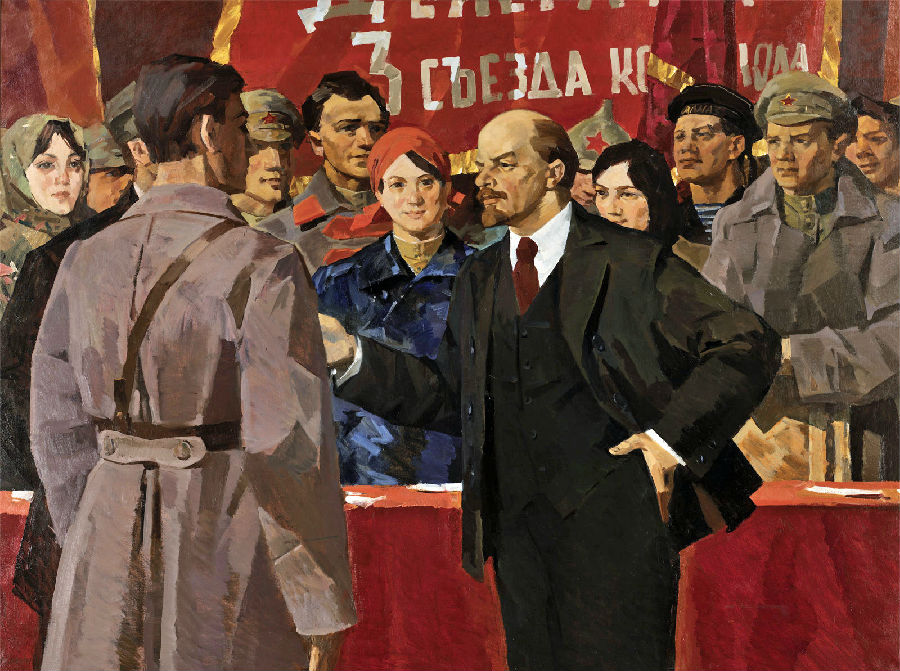Three, abolition of all rights formerly restricted to certain nationalities (Russian) or religions like Russian orthodoxy,
第三,廢除之前特殊民族(俄羅斯族)或宗教如俄國東正教的特權
And four, free development of all national minorities and ethnic groups within Russian lands.
第四,促進俄羅斯境內全國各少數民族的自由發展
This lofty sounding declaration reflected the Bolshevik belief in an immanent world revolution.
這則崇高而夸張的宣言反映出布爾什維克對內在世界革命的篤信
But in a sense it was also a response to the 18 points developed by President Woodrow Wilson to end the First World War.
但某種意義上講,它也是對伍德羅·威爾遜總統為結束一戰而提出的十八點原則(注:實應為十四點原則)的回應
But it resembled even more the Emancipation Proclamation,
但它更多的像是《奴隸解放宣言》,

because it freed people and territories Poland, Ukraine, Belarus, Estonia, Latvia and Lithuania already under another power's control.
因為它解放了人民和領土隸屬波蘭,烏克蘭,白俄羅斯,愛沙尼亞,拉脫維亞和立陶宛已經處在另一種力量的控制之下
Still the Emancipation Proclamation was a major step towards a genuine good.
而《奴隸解放宣言》仍是朝著真正的善而邁出的一步
Lenin and Stalin on the other hand were making a cynical play for the support of the former Russian empire's nationalities.
相反,列寧和斯大林是在上演一出憤世嫉俗的好戲,為了贏得前俄羅斯帝國各族的支持
Once the Bolsheviks established power over the former Russian empire, the non-Russian peoples would find Bolshevik reality quite a bit different.
一旦布爾什維克政權建立起來,非俄羅斯民族會發現布爾什維克現實世界還是略有不同的
On November 19, 1917 the Bolsheviks started peace negotiations with Germany in the town Brest-Litovsk.
1917年11月19日,布爾什維克開始同德國在雷斯特-立托夫斯克(今布列斯特)市進行和平談判












